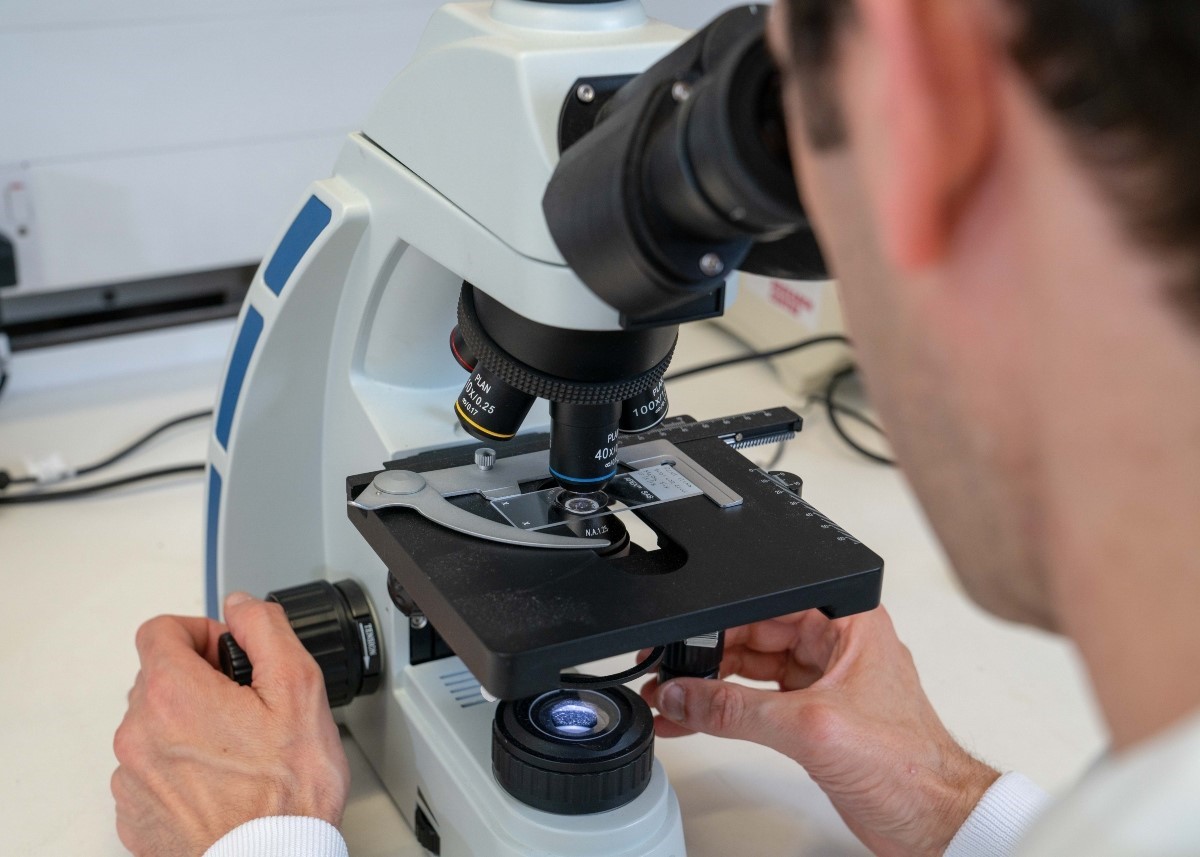It’s been an incredible year of research here at Breast Cancer Now. In this blog, we pick out our favourite research breakthroughs of the year.
Our researchers are always with you, looking for kinder, smarter treatments, and ways to prevent breast cancer. And it’s been an incredible year of research here at Breast Cancer Now. In this blog, we pick out our favourite research breakthroughs of the year.

Existing drug could offer new treatment for triple negative breast cancer
In January, Dr Rachael Natrajan from the Breast Cancer Now Toby Robins Research Centre at The Institute of Cancer Research, London found a change in some triple negative breast cancers that make them vulnerable to existing treatments.
Her team found that triple negative breast cancer cells with low levels of a protein called CREBBP could grow faster and more aggressively, relying on proteins called CDK4 and CDK6. This means drugs called CDK4/6 inhibitors, such as palbociclib, could be an effective treatment.
These results provide a strong case for a clinical trial into the use of palbociclib as a treatment for triple negative breast cancer.
Targeting essential protein could lead to new breast cancer treatments
In March, Professor Stephen Tait and Dr Kirsteen Campbell, from the University of Glasgow, discovered that a protein called MCL-1 could be targeted with a new type of drug already being tested for other cancers.
MCL-1 is present in breast cancer cells in high levels. The researchers found that it helps breast cancer survive by hindering cells’ natural ability to die through a process call apoptosis. By targeting MCL-1, drugs called BH3 mimetics, can restore this process and may help treat people with breast cancer.
While further research is needed, this study presents a strong case to test this emerging new therapy in breast cancer.
A new type of drug to treat breast cancer with changes to BRCA genes
In June, Professor Chris Lord and his team at our research centre working with pharmaceutical company Artios found a new class of cancer drug called POLQ inhibitors. These drugs work by blocking a protein called POLQ.
It was known for some time that removing the POLQ protein kills cancer cells when they have changes to the BRCA genes, but it wasn’t until this year that a drug that targets POLQ had been found.
The next step will be to test these new drugs in clinical trials.
Tumour surroundings helping breast cancer spread
Another discovery was made in June by Professor Clare Isacke, from our research centre. Her team revealed the role a molecule called Endo180 plays in breast cancer spreading and becoming incurable.
They found that when cells surrounding a tumour can’t make Endo180, breast cancer’s ability to grow and spread to other parts of the body is extremely limited.
Next, Professor Isacke and her team will be investigating if targeting the Endo180 molecule with a drug is a suitable new approach to treating breast cancer. Most cancer treatments work by directly killing cancer cells. This new approach would be targeting other cells that surround the cancer and support its growth. Researchers hope it would stop breast cancer growing and spreading.
Changes in gut bacteria can influence breast cancer growth
In September, Dr Stephen Robinson, from Quadrum Institute and the University of East Anglia found that treating mice with broad-spectrum antibiotics increased the rate at which breast cancer tumours grew in them.
They found that antibiotics disrupted the healthy balance of bacteria in the gut which affected the growth of breast cancer tumours. This growth was also linked to larger numbers of immune cells called mast cells. Researchers are now working to understanding where the increase in these mast cells is coming from and why gut bacteria disruption causes this.
Antibiotics have an important role in fighting infections. The benefits of taking antibiotics to prevent and treat infections outweigh the risks of antibiotics use. But this research could help refine how antibiotics are used.
Funding new research
This year we were delighted to fund six new world-class research projects worth over £2 million. They range from using artificial intelligence to help women with DCIS safely skip unnecessary treatment to understanding how breast cancer becomes resistant to treatments.
These projects will bring us one step closer to making sure that no one dies from breast cancer, and people with the disease live well. We look forward to the knowledge and progress this research will bring.
To all our supporters who have helped us achieve these feats, thank you. If you'd like to know more about the vital research happening right now, you can visit our research page.